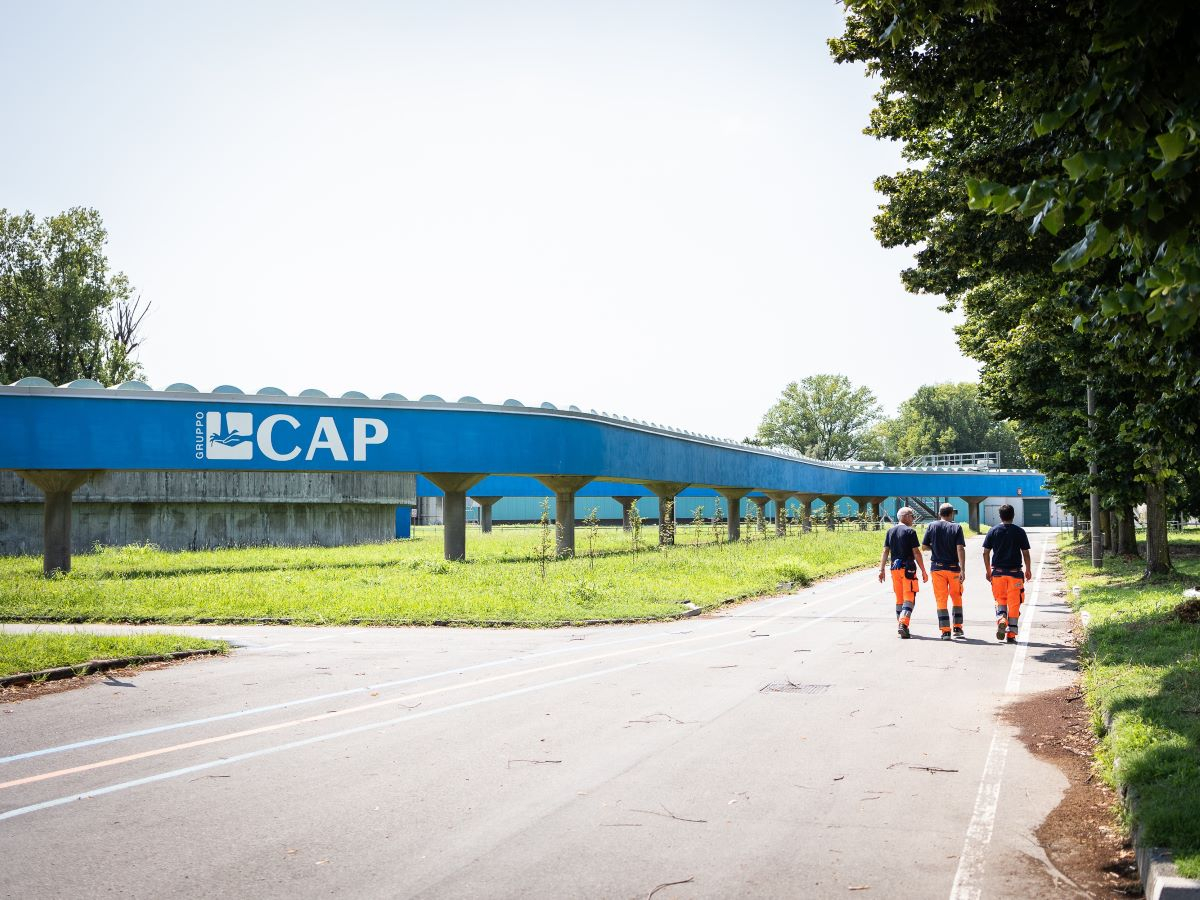For a long time, the integrated water sector was considered naturally sustainable due to its intrinsic relationship with water as an element. This approach, however, is a thing of the past, especially when it comes to decarbonising the supply chain. From procurement to treatment, as well as along their own value chain, water managers today are called to reduce their carbon footprint and be among the protagonists of the energy transition.
So, what strategies should be adopted? Renewable Matter discussed this with Gruppo CAP, the green public utility that manages integrated water services for the Metropolitan City of Milan. This industrial player has undertaken a clear path: science-based targets, investments in efficiency, and the use of sustainable finance instruments from a global perspective.
Phase one: science-based targets
“The integrated water service is a high-energy-intensity activity, which consumes up to 3% of total energy production globally and contributes to over 1.5% of global greenhouse gas emissions. This sector is essential to people’s lives, but it presents highly distinctive emission sources, such as those linked to water treatment,” tells our magazine Alessandro Russo at the end of his term as CEO of Gruppo CAP.
To reduce its footprint, in continuity with the Sustainability Plan adopted in 2019, in March 2023 Gruppo CAP decided to join the Science-Based Target Initiative, therefore committing to a strategy based on the most up-to-date scientific evidence. “We intend to reduce overall greenhouse gas emissions, including direct emissions and those tied to electricity, steam, or heat consumption (Scope 1 and 2) by 42% by 2030 compared to 2021 as the baseline year,” notes Russo.
“Furthermore, we will reduce indirect emissions from our value chain (Scope 3) by 25%. These emissions are linked to goods and services acquired, activities tied to fuels and energy, waste generated during operations, and the use of products sold within the same timeframe.”
Efficiency and sustainability
“I am certain that an inherited way of thinking still exists today. Sustainability is seen as antithetical to efficiency and associated merely with the balance sheet,” says Russo. “However, efficiency is, at the same time, an added value of sustainability, which makes it possible to avoid wasting environmental as well as economic resources. At Gruppo CAP, therefore, we have adopted a holistic approach, across the entire supply chain, aimed at improving how we consume the resources that are assigned to us. For water supply services, decarbonisation mostly means reducing losses. By moving less water we can consume less energy.”
Water loss in Italy is a widespread problem. According to ISTAT (the Italian National Institute of Statistics), in 2022, the overall volume of water losses in the distribution phase equated to 42.2% of the water input into the network. Although the Lombardy region performs better than average (31.8%), Gruppo CAP is aiming for further improvements. NRRP funding worth 42 million euros obtained by the green utility will not only enable investment into innovation and boosting monitoring instruments for predictive maintenance and planning, but it will also make it possible to replace 18 km of network infrastructure, in addition to the 46 km already planned for the 2020-2023 period. And in terms of treatment? According to Russo, besides loss reduction, the goal to date is not an infrastructural goal of building new plants. “We must improve the performance and consumption of existing systems,” explains the CEO.
The role of sustainable finance, beyond carbon credits
For several years, Gruppo CAP has offset all its CO2 emissions by purchasing carbon credits. 93,479 tonnes of CO2 eq., corresponding to 100% of the emissions generated by the water utility in 2021, were offset through the purchase of carbon credits that supported two projects launched in 2021, in India and Madagascar, as well as a new project for the construction of a hydroelectric dam in the Chinese province of Sichuan.
Furthermore, adopting a different sustainable finance instrument, in late 2023 Gruppo CAP placed a 105 million euro sustainability-linked bond, whose coupon is linked to the reduction of the group’s direct and indirect greenhouse gas emissions. The bonds are listed on the Irish regulated market, have a maturity of 14 years, and pay a semi-annual coupon of 5.1%. “This is the first sustainable finance instrument placed by a company in-house that has been purchased by a fund based outside of Europe, having been secured with Pricoa Private Capital, the private debt branch of U.S. group PGIM Inc. and one of the world’s leading asset managers.”
This article is also available in Italian / Questo articolo è disponibile anche in italiano
Images: Gruppo CAP
This content is produced thanks to the support of sponsors



